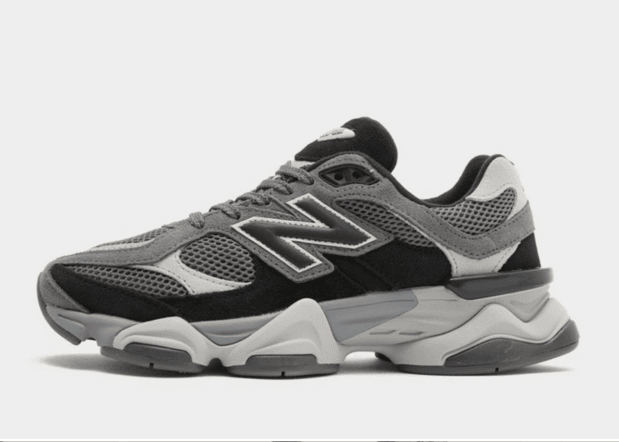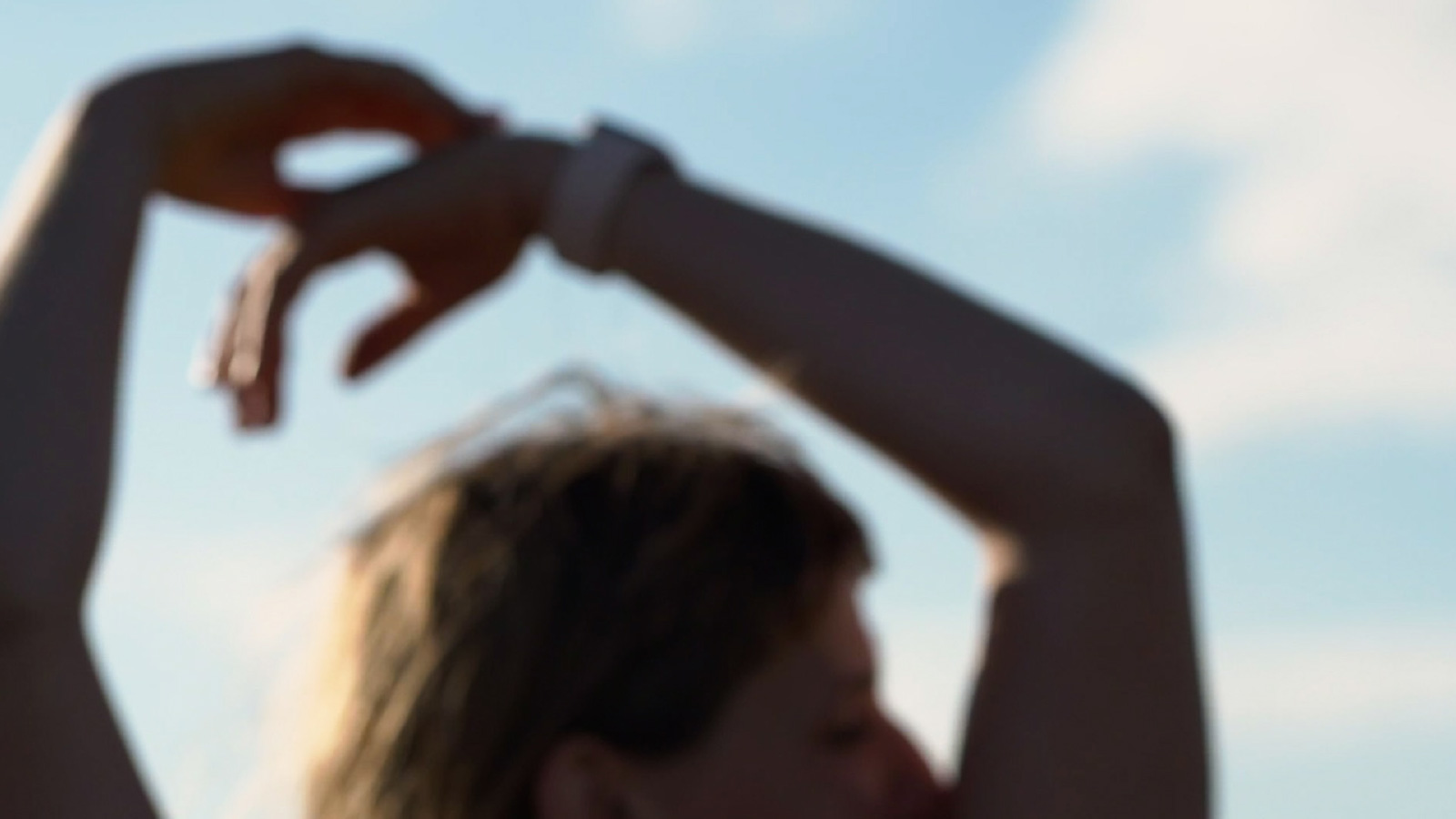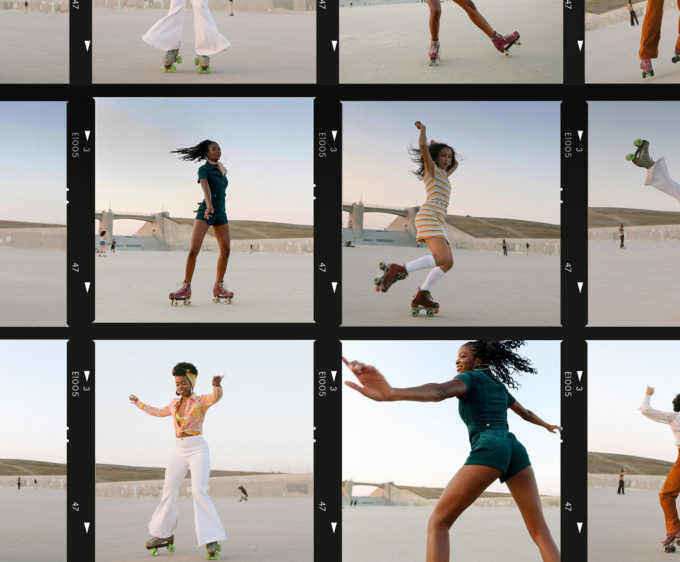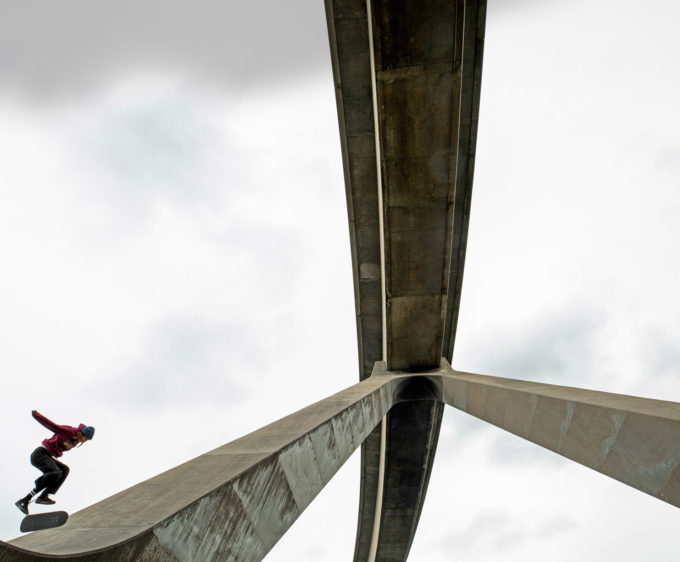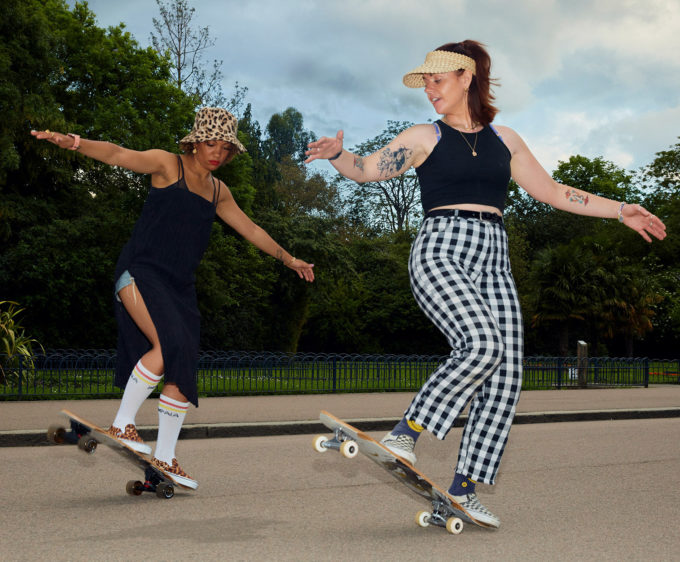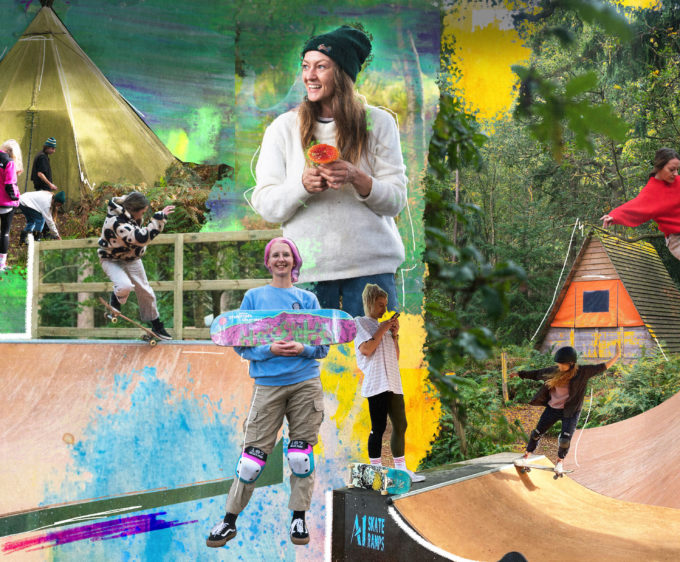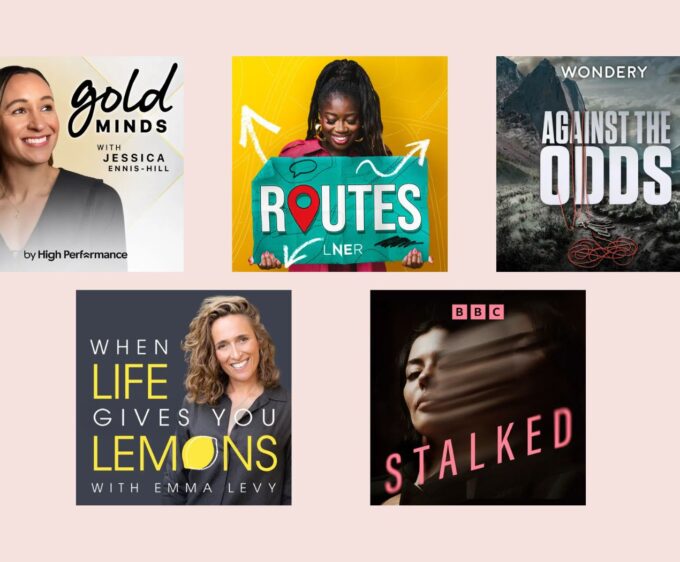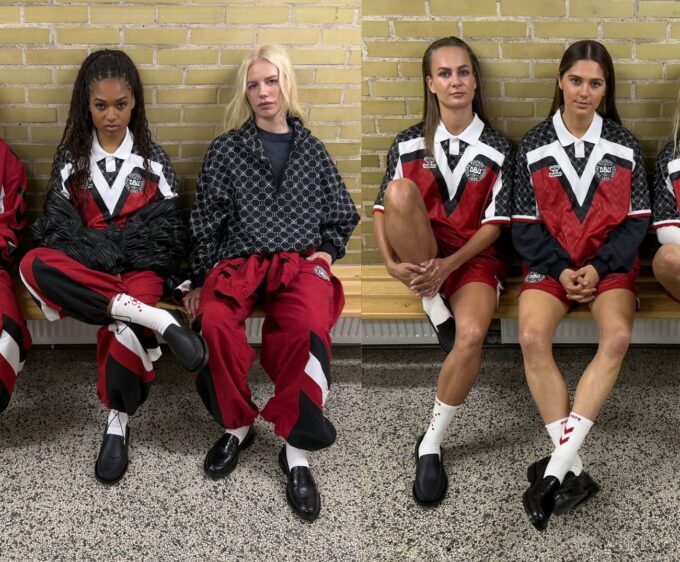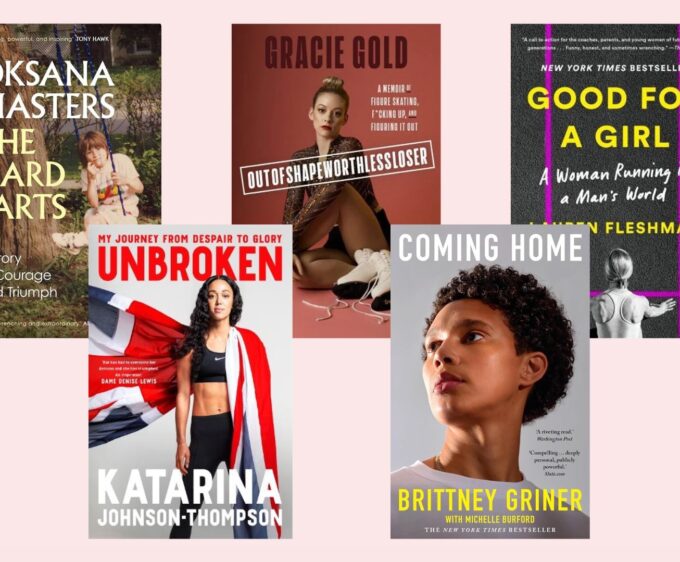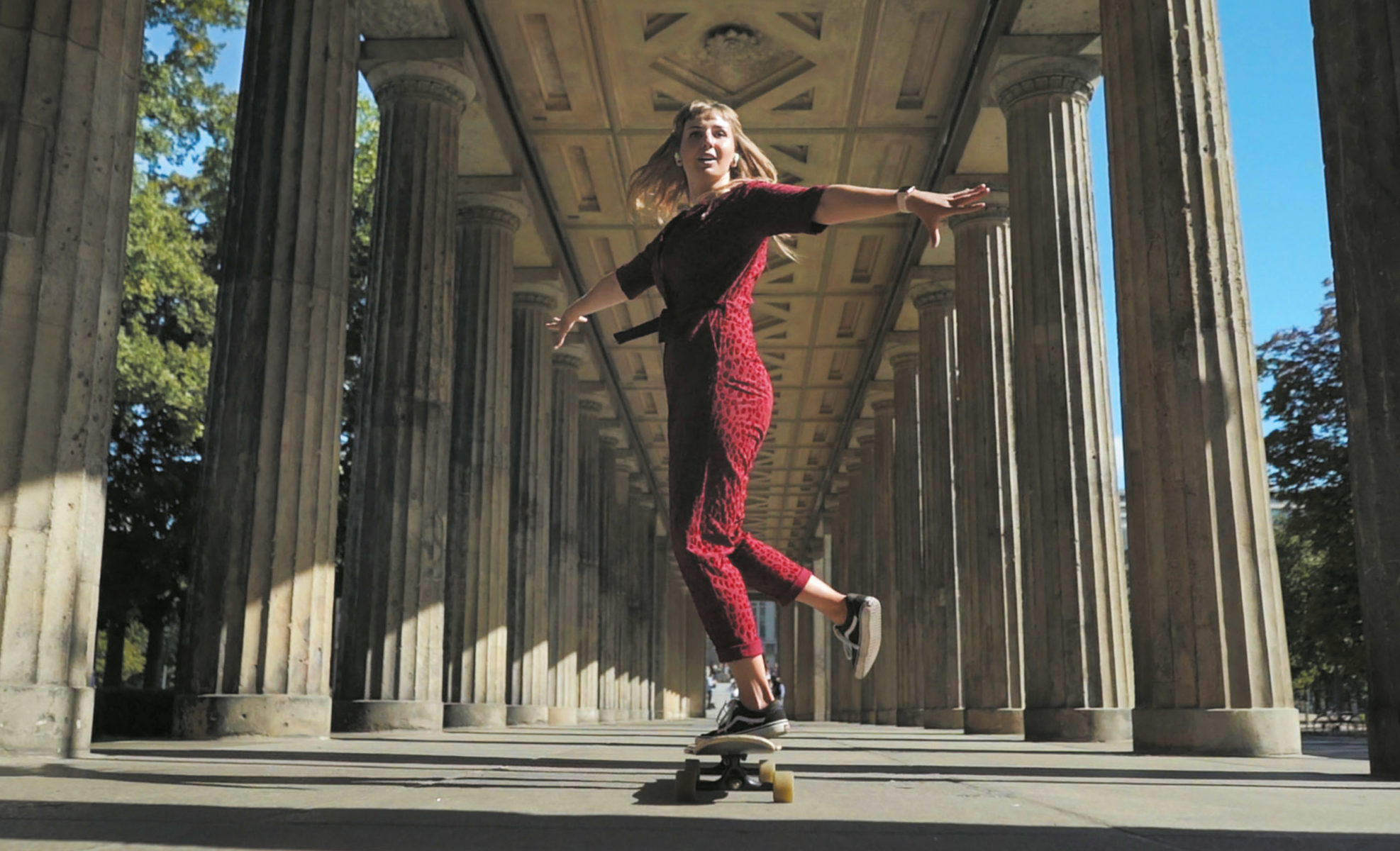
The Longboard Dancer
How longboard dancing is picking up momentum around the world. Instagram star Giulia Alfeo takes us to her favourite skate spots in Berlin and offers her insights
By Giulia Alfeo
What do Paris, Seoul and São Paulo have in common? In recent years, the three cities have become connected through a mesmerising emerging sport: longboard dancing. It started in 2006 in the United States when two friends filmed themselves doing hilarious tutorial videos. ‘Trick Tips with Adam and Adam’ taught steps and tricks through funny sketches, proving popular in the skateboard and longboard surfing scene. A Dutch skater, Luutse Brouwers, was the first in Europe to demonstrate the carving motion of the board, including flowing steps and difficult tricks. Captured in the beautiful Dutch countryside, his calming videos were a hit. They inspired and captivated longboard dancers in Europe, and soon after local communities grew in Spain, France, Germany, The Netherlands, and beyond.
This all happened before 2013: the year that I started longboard dancing. At the beginning, I was hooked to the feeling of freedom on four wheels. It’s like I’m flying over the streets on a wooden plank. But it’s the open-minded, friendly communities that have encouraged me to stick with the sport.
When I first started skating, I practised every day. My background in figure skating and dancing meant I progressed quickly, which helped me stand out at skate events and competitions, mainly due to the small number of female participants. I did well at competitions and received a lot of encouragement from fellow skaters. Even though I personally didn’t have much interest in winning, I had the opportunity to make a name for myself within the skate scene. This meant working hard and turning up at competitions on a regular basis.
I admit my ambition partly stems from being minoritized in a scene that’s dominated by men (and masculinity in general). But this is something that has shifted over the years. Through organisations like the ‘Longboard Girls Crew’ or S*pin magazine, the visibility of women within longboarding is thankfully expanding.

Unlike other board sports, the longboarding community is so warm and welcoming. But that’s not to say the sport isn’t competitive. ‘So You Can Longboard Dance’ is an organised competition held annually in Eindhoven, The Netherlands. Every year the number of international riders grows and the competition becomes more fierce than the last. Talent often see this event as an opportunity to showcase progressive skills and newly introduced techniques. And yet, the event still feels like a fun get-together with a strong community spirit at its core.
One year, two South Korean fashion designers took part in the competition before opening up one of the first longboard shops in their home city of Seoul. When the shop launched, they created a group of skaters called ‘Style Riders,’ which included Doyoung Gwon; one of the pioneers. He created the ‘Longboard Dancing Lab,’ a Facebook Group to encourage Korean and other international longboard dancers to make videos, help each other film and share their love of the sport. The South Korean community grew quickly and impressed riders from all over the world with their technical skills. “I can’t say I know when Koreans started longboard dancing exactly but I believe our shop has played a huge part in introducing the sport to our country and serving as a hub for the community,” Doyoung told me.
FLOWING STEPS

Because the longboarding community is small, most communication happens through social media platforms. Ko Hyojoo became a viral hit back in 2015 with one of her Instagram videos, which helped spread the word about the sport internationally. She inspired many South Korean women and others from all over the world to skate like her.
Typically, South Korean or French riders tend to use boards that are generally around 115 cm or longer, which helps with stepping manoeuvres. In comparison, the planks used by Brazilian riders are much shorter, which allows them to nail wild tricks. They pop their boards in crazy flips as if defying gravity.


fun community
One of the most influential Brazilian skaters is Brenno Brelvis whose skating is heavily influenced by capoeira (an afro-Brazilian martial art). It looks like dancing, but the aim of capoeira is to trick the opponent with unpredictable moves. Brenno explained to me, “Capoeira was a technique used by slaves to evade evildoers of the time. I incorporate the moves as a form of cultural expression that tells a story about the history of my country.”
Brenno travelled all over Europe to So You Can Longboard Dance, financed through a crowdfunding campaign. With his unique style and his signature move, the ‘Spin Brélvis’ (which is a knee drop borrowed from breakdancing), he stunned the audience and many mimics followed.

Not many people know that Paris is the European capital of longboarding. This is thanks to the dedicated work of Lotfi Lamaali and other locals who organise events and weekly sessions called ‘The Docksessions.’ People from all over the world are invited to skate with the Parisian crew. For many longboard dancers, these meetups and the pure joy of skating are the main drives.
In 2019, I participated in the new 360 Longboard Dancing Open Competition. This is where I met Marina, a French longboard dancer from Nice. I already felt like I knew her, having watched her videos on Instagram where she would perform her high, inimitable Hippie Jump. Her dynamic and joyful skating made her stand out from the crowd. So, it was no surprise to see her on the podium with me. We became friends through a mutual love of the sport. During hectic competitions we don’t get much time to catch up, so I was excited to be able to see her again in Berlin for the Glorious shoot.

We connect over a common perspective, love and appreciation of longboard dancing, as she described it: “It’s much more than a discipline; it’s an art, a way of life. What I like most about longboard dancing is freedom and the ability to express myself with my body through the sport,” she continued, “Dancing and doing tricks is an incredible feeling. I forget all my problems, enjoy the moment and have fun.”
From talking with Marina, I realised that for many years I ignored the struggle others might face due to their intersecting identities. She explained to me how Black people, especially Black women, are not represented enough in the longboard community. She has to fight much harder to get the visibility afforded to white women with long straight hair doing the same tricks as her.
Marina explained: “As Black women, we do not correspond to the expected aesthetic standards. Personally, I’ve had some pretty offensive comments about my skin colour posted under my longboard videos. I’ve digested that as best I can.” Organisations like Black Girls Skate are expanding their visibility and celebrating Black skaters to defy the stereotypes. The community includes skateboarders, ice skaters and roller skaters. I know this is just the beginning for them.

Another fellow longboarder, Valeriya Gogunskuka, tapped into the sport’s community to build a name for herself with a travel concept. As a beginner skater who wasn’t able to afford to go abroad, she had the idea to invite the best skaters to Santa Cruz, Portugal, where she organised retreats that focused on longboard dancing. Over three years, she has helped a lot of people progress, making new friends and creating a worldwide community of dancers who are interconnected through this shared experience in a beautiful setting.
Taking part is also an enriching experience for instructors like me. At a camp last year, we collaborated with the Dancehall performer and teacher Nadiah NFuZion. Through the exchange, I was able to redefine and focus my style to position myself differently from others.

In the past I used to talk about how I missed expressive motion with my upper body when longboard dancing (the moves mainly focus on steps and tricks on the board). Then I realised I had always focussed on the musicality of my skating – this is what made me different. At the beginning, I didn’t have the vocabulary to explain what I was doing and it can be very intimidating to express yourself in front of other people.
Now I have a better understanding of what dancing can mean: it doesn’t necessarily have to be movements with arms, upper body or even a full-body experience – it can be any rhythmic expression. This new insight on musicality empowered me to work on new methods for teaching longboard dancing, which hopefully enables more longboard dancers to find even more joy on the board.
I believe that people can be whoever they want within the longboard dancing community. I encourage others not to prioritise competitions or focus on being the best, so they can find enjoyment in just being an active part of the community. I see this as an opportunity to make the sport their own and add personality, I tell them simply: “Be who you are and show this through your skating.”
JOY ON THE BOARD
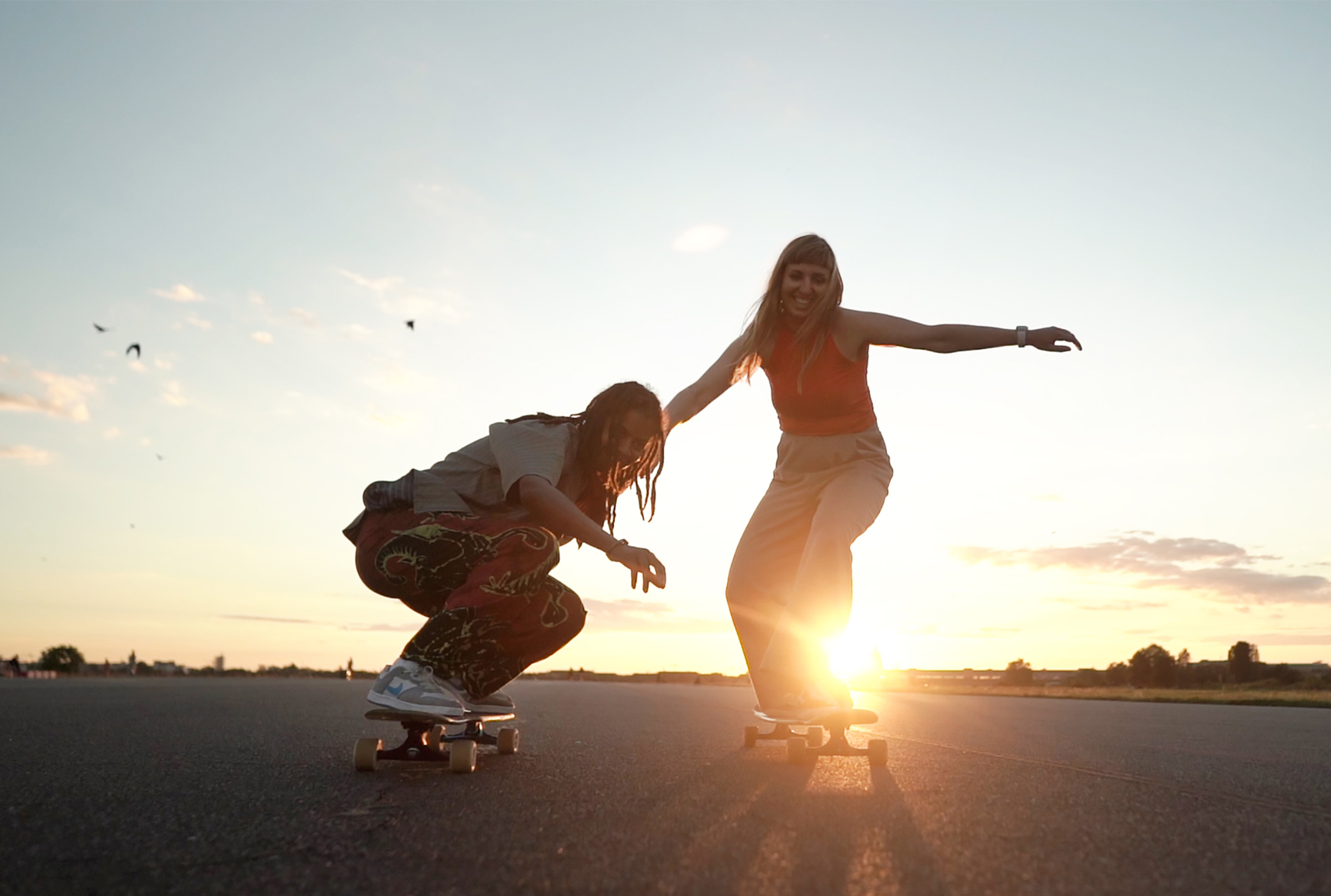
Art Direction, Production & Editorial Design Root, Director of Photography Axel Massin, featuring Giulia Alfeo and Marina Correia
